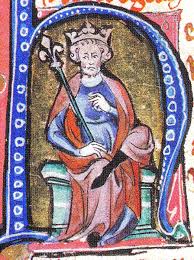King Cnut, also known as Canute, was King of England in the early eleventh century. His father, Sweyn Forkbeard, was King of a united, Dane controlled, England as well as lands in Scandinavia. Cnut’s reign is considered to be have been a good one, he is often called Cnut the Great. This is in part due to his introduction of laws that were fair and in the interests of the people, not just the nobles. His law on intestacy, dying without a will, is one such example. His law decrees that landlords cannot take property or goods unjustly. That the family of the deceased retain the right to inherit, even without a will. This is a significant law in English history which sets a precedent that has continued to this day.

Source: King Cnut’s Law on Intestacy
And if anyone depart this life intestate, be it through his neglect, be it through sudden death; then let not the lord draw more from his property than his lawful heriot. And according to his direction, let the property be distributed very justly to the wife and children and relations, to every one according to the degree that belongs to him.
Do you want to find other Primary Sources for use in your lessons, or for research purposes? Visit our Primary Sources page to see which areas we currently have a range of sources for.